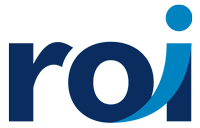Healthcare IT Practice
Revenue Cycle Assessments
Unlock Your Healthcare Potential With Our Revenue Cycle Assessments.
How we can help
Are you leaving money on the table?
Uncover hidden revenue.
Transform your revenue cycle and watch your profits soar with our comprehensive Revenue Cycle Assessments. Our expert consulting team will uncover hidden revenue opportunities and streamline processes for maximum efficiency and patient satisfaction.
Real results.
Our team has deep experience in improving the revenue cycle for hospitals and health systems across the nation. Here are a few highlights from engagements that ROI employees have led during their careers.

GA Health System
Through focusing on areas identified during initial assessment, and then efforts to ensure appropriate coding based on improved documentation, the client turned a $40,000 investment into a $400,000 improvement in net revenue the first year.

CA Medical Center
Focused efforts on admission processes identified as not best practices during assessment saw a reduction in denials. The focused project of $20,000 showed a return on investment of $60,000 in the first three months with an annualized one year return of $240,000.

NY Rural Hospital
Focused efforts on ABN process ($30,000 investment) resulted in immediate return of $10,000 per month in reduction of medical necessity denials. One year return of $120,000.
Related Insights
Learn more
Frequently asked questions.
Typically, the process starts with an engagement and scope agreement. This outlines the purpose of the assessment, scope of services to be provided, and expected outcomes. An analysis team then works with key stakeholders in finance, patient accounts, billing operations and IT to collect data, document processes and review policies. The team performs an in-depth analysis of the data to determine areas of improvement, then develops a set of recommendations for a revenue cycle optimization plan. Finally, implementation plans are developed and the system is monitored to ensure performance goals are met.
A revenue cycle assessment provides valuable information to identify potential issues and opportunities. Through the process, organizations can uncover areas of inefficiency, find ways to enhance patient experience, optimize business operations and increase financial performance. Additionally, an analysis can provide a comprehensive view into the current state of an organization’s revenue cycle – from identifying underutilized technology to processes that could be more automated. In the end, it can help create a more efficient and effective revenue cycle system that supports its mission of providing quality patient care.
By assessing an organization’s revenue cycle, organizations can gain increased visibility into their overall financial health and performance. This helps them identify areas for improvement and provides them with actionable insights to make more informed business decisions. It also allows them to discover ways to reduce costs, improve patient satisfaction and increase revenue. Additionally, it helps organizations prepare for regulatory changes and ensure compliance with industry standards. Ultimately, an assessment can help streamline workflow processes and create the framework for a more efficient healthcare revenue cycle system.
The length of a revenue cycle assessment depends on the size of the organization and scope of services requested. Generally, most assessments take between 3 and 6 months to complete. However, the timeline may be shorter or longer depending on the complexity and customization needed for each engagement.
Before the assessment, organizations should understand their current revenue cycle processes, have access to financial information as well as billing and coding data. Additionally, identifying key stakeholders and setting up meetings with them to discuss any issues or questions prior to the assessment is also a good idea. Finally, having an updated organizational chart will help the assessment team better understand the organization’s structure and processes. Preparing for a revenue cycle assessment will help ensure that the process is more accurate and efficient, resulting in better outcomes.
Healthcare IT Leadership
Meet ROI's Team

Scott Hein
President & Founder
As one of the founders of ROI, Scott is dedicated to delivering the highest quality services to ROI’s clients. Since 1999, he has led the continued vision of quality deliverables, teamwork and value.

Chris Quimby
Partner, HIT Strategy and Services
Chris leads ROI’s Healthcare IT practice. He has extensive experience with a wide array of healthcare technologies supporting today’s multi-facility healthcare environments.

Jeff Tennant
EVP, Healthcare IT Strategy & Services
Jeff offers more than 20 years of experience in IT, healthcare, and consulting. He manages several of ROI’s key strategic customer relationships while serving as a thought leader.
DAVID SCHLESINGER, SVP of Business & Finance Systems @ Seasons Hospice

